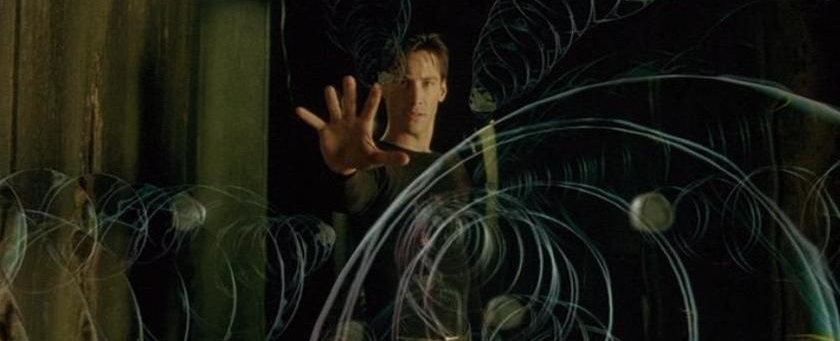
 | |
| Photo © 1999 Warner Bros. Pictures | |
| Academy Award Nominations and Winners: | |
| ★ | Best Film Editing: Zach Staenberg |
| ★ | Best Sound: John T. Reitz, Gregg Rudloff, David E. Campbell, and David Lee |
| ★ | Best Sound Effects: Dane A. Davis |
| ★ | Best Visual Effects: John Gaeta, Janek Sirrs, Steve Courtley, and Jon Thum |
| Other Awards: | |
| British Academy Awards (BAFTAs): Best Sound; Best Visual Effects | |
| Permalink | Home | 1999 | ABC | Blog |